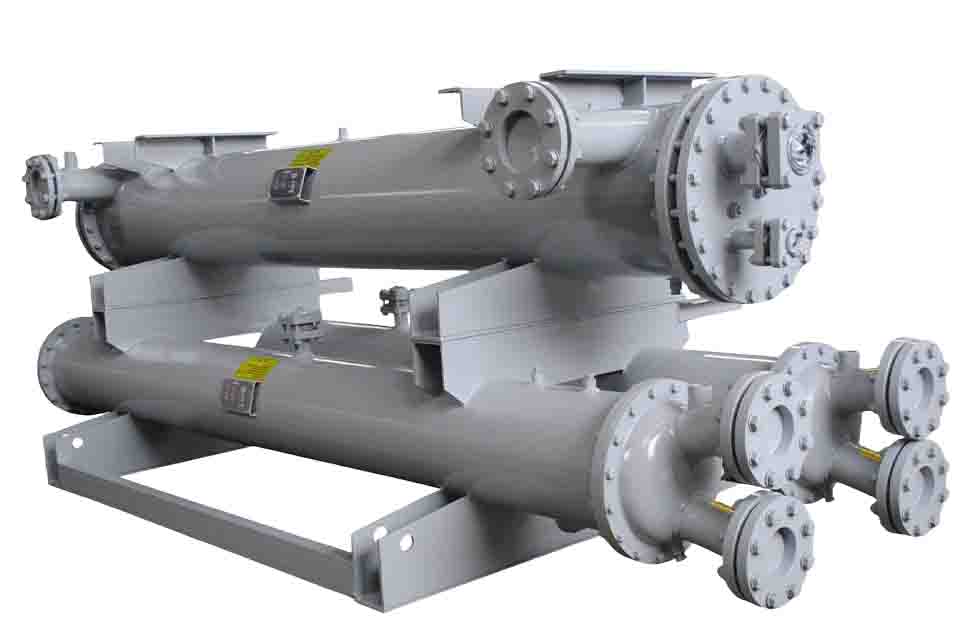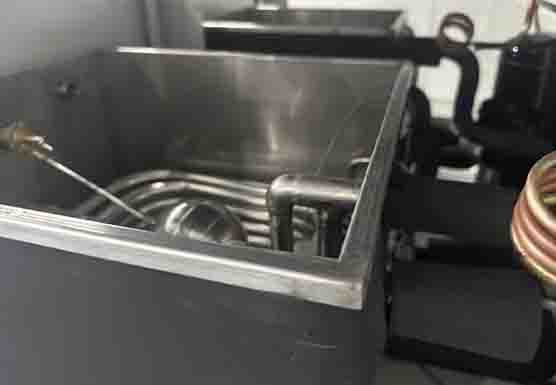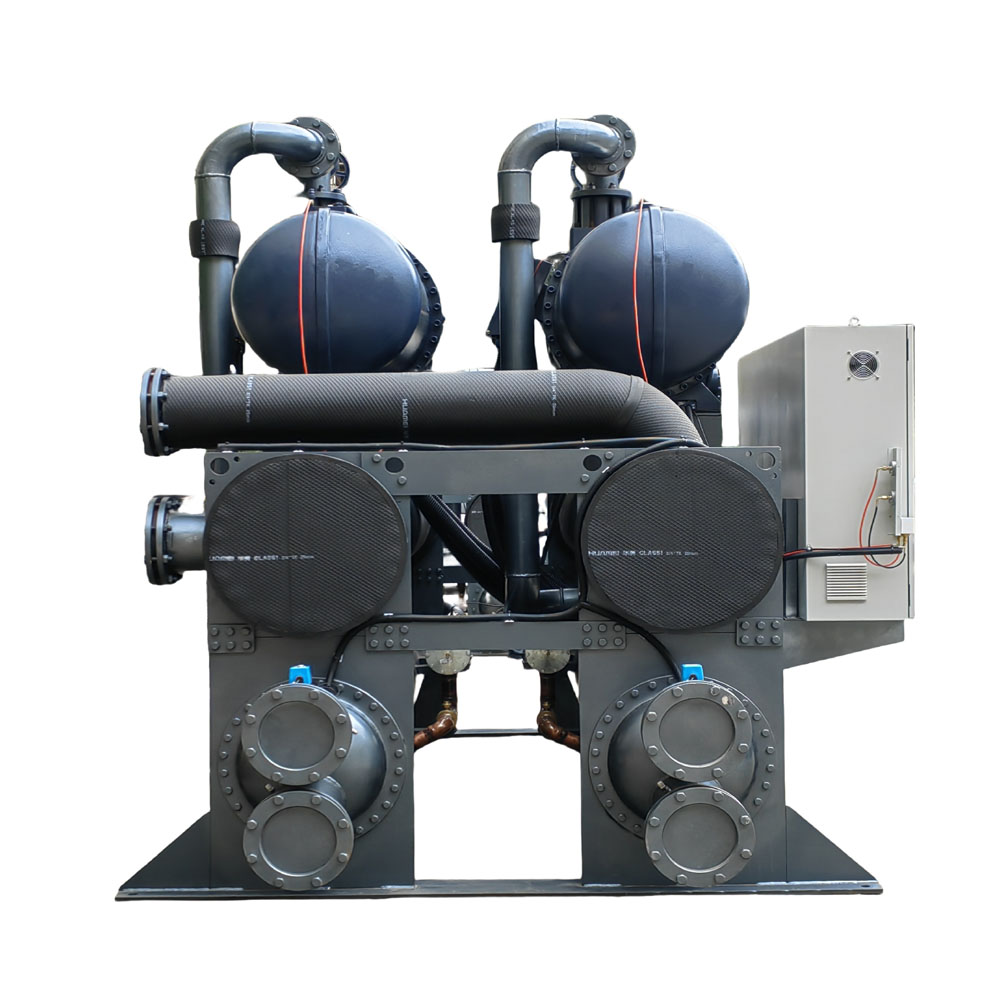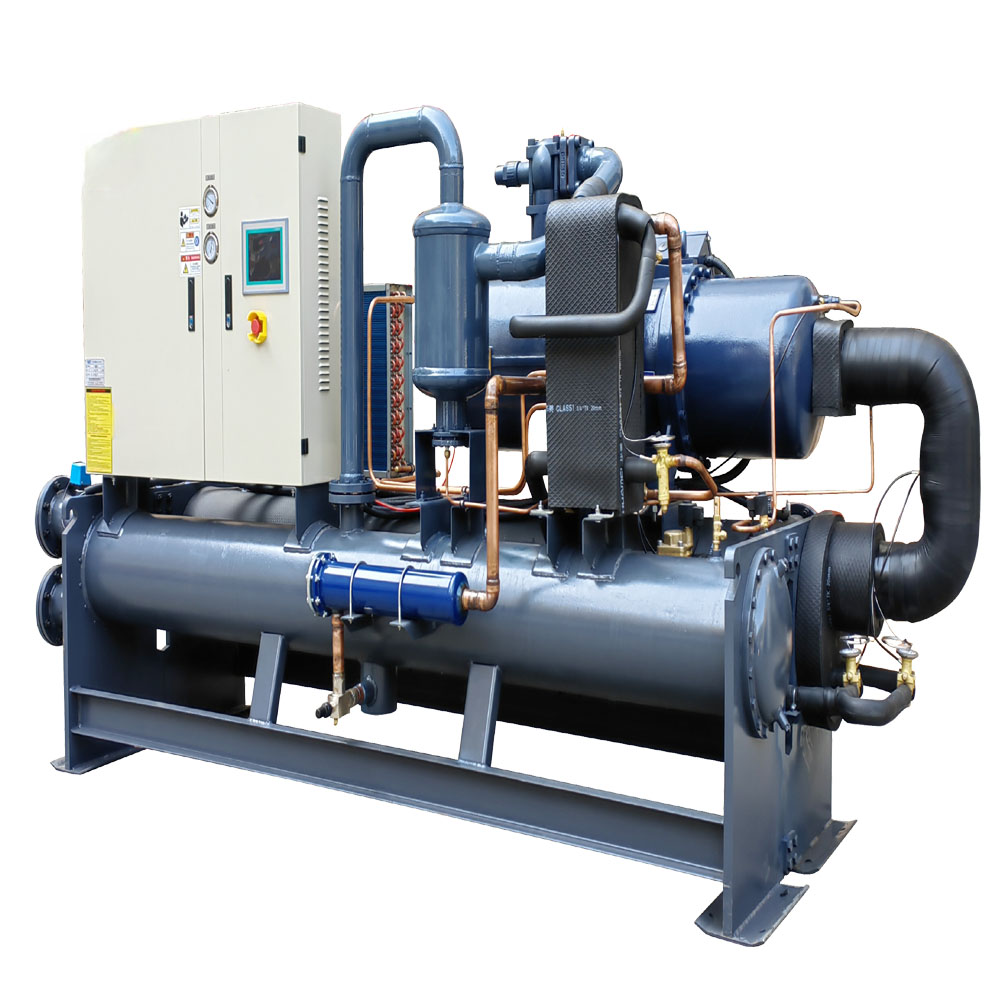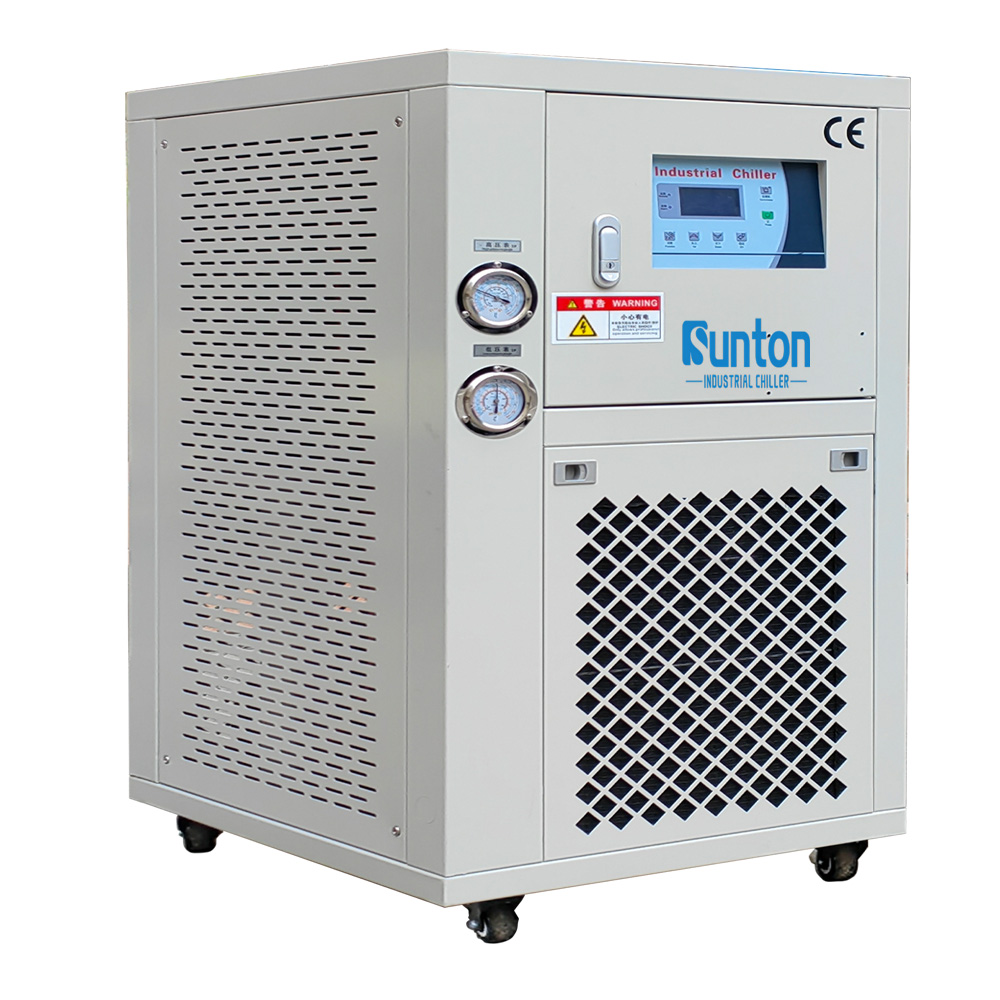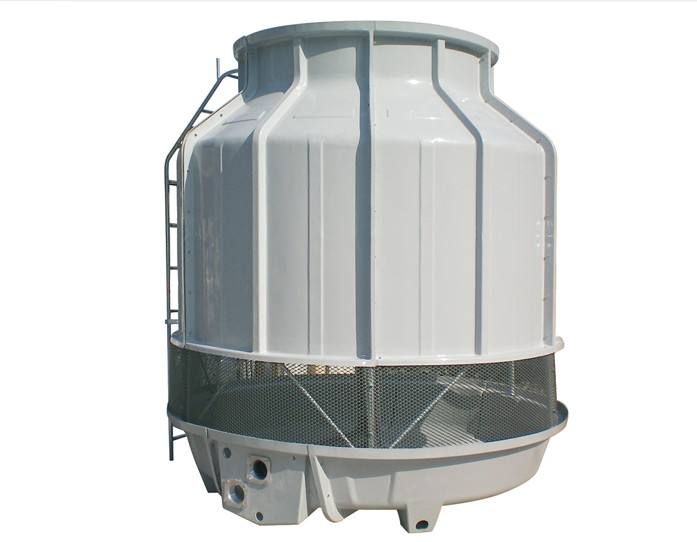-
Dalingshan Industrial Guangdong
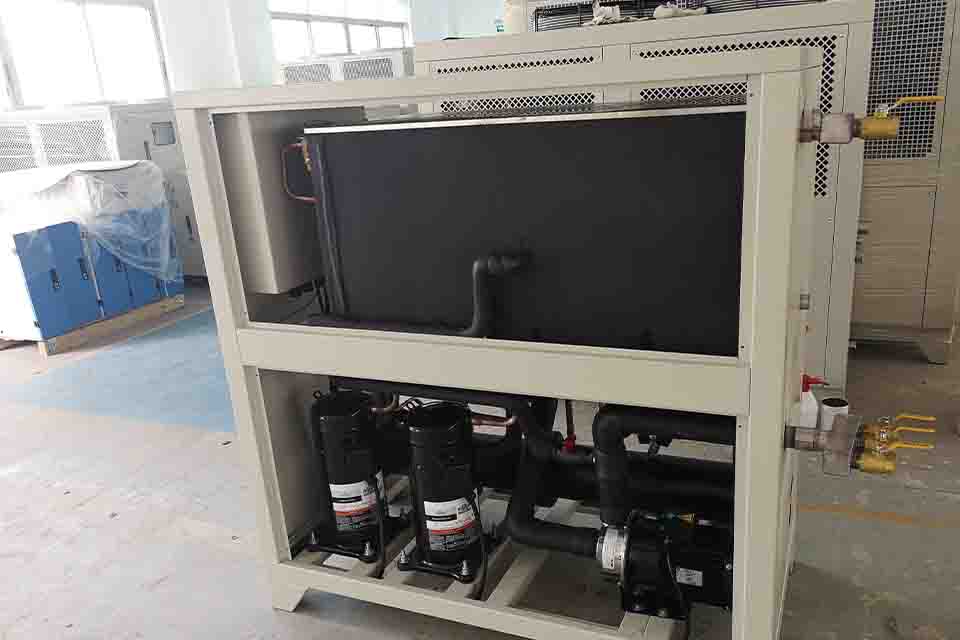
3 ways mcs microprocessors provide tighter process control
Microprocessor Control System (MCS): Revolutionizing Industrial Process Control
This article explores the transformative role of Microprocessor Control Systems (MCS) in modern industrial settings. From enhancing precision in manufacturing to ensuring compliance with environmental standards, MCS technology is indispensable for businesses aiming to optimize operations and boost efficiency. As an industrial water chiller manufacturing plant catering to diverse sectors like Plastics and Rubber, Food and Beverage, and Data Centers, understanding and leveraging MCS is crucial for staying competitive and meeting the evolving needs of our customers. Let’s delve into why MCS is not just an option but a necessity for today’s industries.
Table of Contents
What is a Microprocessor Control System (MCS)?
A microprocessor control system (MCS) is a digital system that uses one or more microprocessors to manage and regulate various industrial processes. Unlike traditional electromechanical controls or purpose-built electronic controls, MCS offers greater flexibility, precision, and adaptability. A microprocessor is essentially the brain of the system, executing instructions stored in memory to control machinery, monitor performance, and make real-time adjustments. The first microprocessors emerged in the early 1970s. By incorporating a central processing unit on a single integrated circuit, microprocessors revolutionized computing and automation.
In our industrial water chillers, the microprocessor control program ensures that the cooling process is optimized for specific applications, whether it’s maintaining precise temperatures in plastic molding or ensuring consistent cooling for data center servers. Microprocessors have followed Moore’s Law. The increase in capacity of microprocessors has followed. For example, the affordable 8-bit microprocessors with 16-bit addressing also became common in many industrial applications. Microprocessors and microcontrollers with products for industrial purposes.
How Does a Microcontroller Differ from a Microprocessor in Industrial Applications?
While both microprocessors and microcontrollers play crucial roles in automation, they serve different purposes. A microprocessor acts as the central control unit in a computer system, handling complex tasks and requiring external components like memory and input/output devices. Microprocessors were used to operate external memory. A microcontroller, on the other hand, is a self-contained unit with a built-in CPU, memory, and peripherals, designed for specific control tasks within an embedded system.
In the context of industrial water chillers, microcontrollers are often used for specific functions like monitoring temperature sensors, controlling pumps, and managing alarms. For instance, a microcontroller in our Glycol chillers might be responsible for regulating the flow of glycol to maintain the desired temperature, showcasing how microcontrollers are tailored for specific control tasks within a larger system. Microprocessors or microcontrollers having ROM continue to be developed.
Why are Microprocessors Essential in Modern Process Control?
Microprocessors are the backbone of modern process control systems due to their ability to handle complex algorithms, process large amounts of data, and provide real-time control. In industrial settings, microprocessors enable precise control over various parameters, leading to improved product quality, reduced waste, and enhanced safety.
For example, in the Machining Industry, maintaining a consistent temperature is crucial for preventing thermal expansion and ensuring the accuracy of machined parts. Our industrial water chillers, equipped with advanced microprocessor control systems, can maintain temperature stability within tight tolerances, demonstrating the critical role of microprocessors in achieving high precision and quality in manufacturing processes. The processing speed of the system is important in these applications.
What are the Key Components of an Effective MCS?
An effective MCS comprises several key components working in harmony:
- Microprocessor/Microcontroller: The core processing unit that executes control algorithms.
- Sensors: Devices that measure physical parameters like temperature, pressure, and flow rate.
- Actuators: Components that carry out control actions, such as adjusting valves or starting motors.
- User Interface: A system for operators to monitor and interact with the control system.
- Power Supply: A stable power source to ensure reliable operation.
Table: Key Components of an Effective MCS
| Component | Function | Example in Water Chillers |
| Microprocessor | Executes control algorithms, processes data | Controls the overall cooling process |
| Microcontroller | Manages specific tasks, interfaces with sensors and actuators | Regulates temperature, controls pumps, manages alarms |
| Sensors | Measure physical parameters (temperature, pressure, flow rate) | Temperature sensors monitor coolant temperature |
| Actuators | Carry out control actions (adjust valves, start motors) | Compressor motor, pump motor |
| User Interface | Allows operators to monitor and interact with the system | Touchscreen display for setting parameters and viewing status |
| Power Supply | Provides stable power to the system | Ensures continuous operation of all components |
| Communication | Enables data exchange between components and external systems | Modbus, Ethernet/IP for integration with plant control systems |
| Memory (RAM/ROM) | Stores program instructions and data | Stores control algorithms, sensor data, and settings |
| Input/Output | Interfaces with external devices and signals | Connects to sensors, actuators, and other equipment |
| Software | Programs that define the system’s behavior and control logic | Firmware, application software |
| Safety Features | Protects the system and personnel from hazards | Emergency stop, alarms, fault detection |
| Diagnostics | Monitors system health and identifies issues | Self-test routines, error logging |
| Enclosure | Protects components from environmental factors | IP-rated enclosure for dust and water resistance |
| Cooling System | Maintains optimal operating temperature for electronic components | Fan or liquid cooling for the control unit |
In our water-cooled scroll water chiller, these components work together to maintain precise temperature control. Sensors continuously monitor the water temperature, the microprocessor processes this data, and actuators like the compressor and fans are adjusted accordingly. This integrated approach ensures optimal performance and energy efficiency.
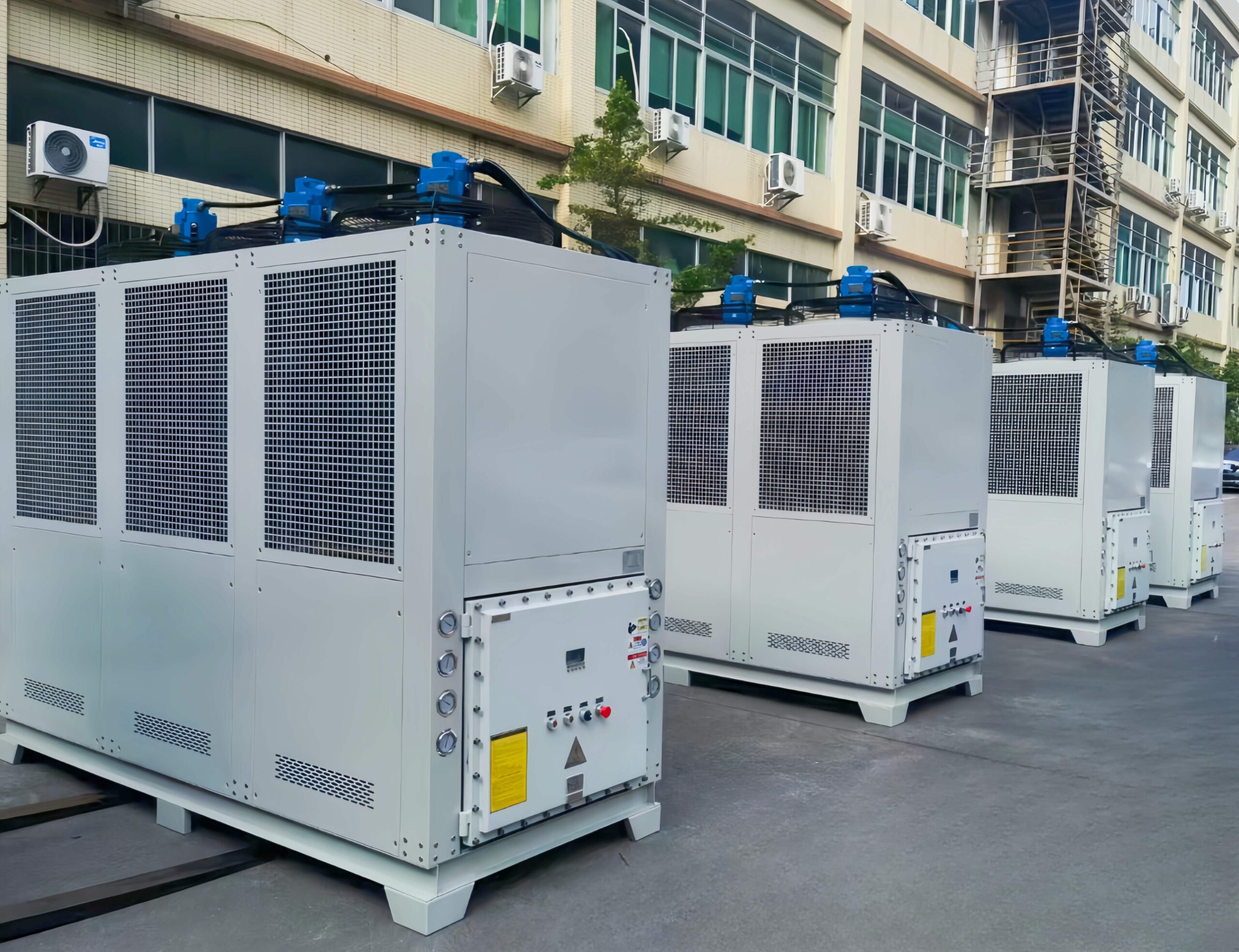
How Do Embedded Systems Enhance the Functionality of MCS?
Embedded systems, which often include microprocessors, are specialized computer systems designed to perform specific tasks within larger mechanical or electrical systems. In the context of MCS, embedded systems enhance functionality by providing digital control over various components, enabling real-time monitoring, and facilitating communication between different parts of the system.
For instance, in our industrial water chillers designed for the Medical Industry, embedded systems ensure that critical parameters like temperature and flow rate are maintained within strict limits, crucial for applications like cooling MRI machines. Many more microprocessors are part of embedded systems, providing digital control over myriad objects from cellular phones. This integration of embedded systems into MCS showcases their importance in enhancing reliability and performance.
What Role Does the Operating System Play in MCS Performance?
The operating system (OS) in an MCS is crucial for managing hardware resources, scheduling tasks, and ensuring the smooth execution of control algorithms. A well-chosen OS can significantly impact the system’s real-time performance, stability, and reliability.
In complex industrial applications, such as those in the Chemical and Pharmaceutical Industry, a robust OS ensures that the MCS can handle multiple tasks simultaneously without compromising performance. Our industrial water chillers utilize advanced operating systems to manage various functions, ensuring that critical cooling processes are not disrupted, thereby demonstrating the importance of a reliable OS in maintaining operational efficiency.
How Can MCS Improve Efficiency in the Plastics and Rubber Industry?
The Plastics and Rubber Industry relies heavily on precise temperature control during various stages of production, from injection molding to extrusion. Implementing an MCS can significantly improve efficiency by:
- Optimizing Cooling Processes: Microprocessors can dynamically adjust cooling parameters based on real-time feedback, ensuring optimal cooling rates and reducing cycle times.
- Reducing Energy Consumption: By precisely controlling the operation of cooling equipment, MCS minimizes energy waste and lowers operational costs.
- Improving Product Quality: Consistent temperature control leads to uniform product quality, reducing defects and scrap rates.
For example, our industrial chillers for the textile industry are designed to meet the specific cooling needs of different textile manufacturing processes. By using advanced MCS, we ensure that our chillers deliver precise and reliable cooling, enhancing both productivity and product quality in the textile industry. Use microprocessor engine management systems to achieve these objectives.
What are the Benefits of Implementing MCS in the Food and Beverage Industry?
The Food and Beverage Industry requires stringent temperature control to maintain product safety, quality, and shelf life. Implementing MCS offers several benefits:
- Enhanced Food Safety: Precise temperature control prevents bacterial growth and ensures compliance with food safety regulations.
- Improved Product Consistency: Consistent cooling ensures uniformity in product texture, flavor, and appearance.
- Increased Efficiency: Automated control systems reduce manual intervention, streamlining operations and minimizing human error.
Our industrial glycol chillers for breweries are a prime example of how MCS can benefit the Food and Beverage Industry. By maintaining precise glycol temperatures, our chillers ensure optimal fermentation and storage conditions, crucial for producing high-quality beer. This demonstrates the significant impact of MCS on maintaining product quality and operational efficiency.
How Does MCS Support Compliance with Increasingly Stringent Pollution Control Standards?
With increasingly stringent pollution control standards, industries are under pressure to minimize their environmental impact. MCS plays a crucial role in achieving compliance by optimizing processes to reduce emissions and waste. The system can provide control strategies that would be impractical to implement using electromechanical controls.
For example, in the Chemical Industry, precise control over reaction temperatures can minimize the formation of harmful byproducts. Our industrial water chillers, equipped with advanced MCS, enable chemical manufacturers to maintain optimal reaction conditions, reducing emissions and ensuring compliance with environmental regulations. This showcases how MCS technology supports sustainable and environmentally responsible industrial practices. Stringent pollution control standards effectively require automobile emission control systems to use a microprocessor.
Why Choose Our Industrial Water Chillers with Advanced MCS Technology?
As a leading manufacturer of industrial water chillers, we understand the critical role of precise temperature control in various industries. Our chillers are equipped with state-of-the-art microprocessor control systems designed to deliver unparalleled performance, reliability, and efficiency.
Here’s why you should choose our products:
- Customization: We offer tailored solutions to meet the specific needs of different industries, from Plastics and Rubber to Data Centers.
- Advanced Technology: Our chillers incorporate the latest advancements in microprocessor and microcontroller technology, ensuring optimal performance and energy efficiency.
- Reliability: With robust system design and rigorous testing, our chillers are built to withstand the demands of industrial environments.
- Expert Support: Our team of experts provides comprehensive support, from system design to installation and maintenance, ensuring seamless integration and operation.
By choosing our industrial water chillers, you are investing in cutting-edge MCS technology that will enhance your operational efficiency, improve product quality, and support your sustainability goals.
FAQs
What industries can benefit from your industrial water chillers?
Our industrial water chillers are designed to meet the needs of a wide range of industries, including Plastics and Rubber, Machining, Food and Beverage, Chemical and Pharmaceutical, Electronics, Laser, Printing, Medical, Laboratories and Research Institutions, and Data Centers.
How does the microprocessor control system in your chillers improve energy efficiency?
The microprocessor control system in our chillers optimizes the operation of cooling components based on real-time data, minimizing energy consumption while maintaining precise temperature control. This results in significant energy savings and reduced operational costs.
Can your chillers be integrated with existing plant control systems?
Yes, our chillers are designed for seamless integration with existing plant control systems. They support various communication protocols, allowing for centralized monitoring and control.
What kind of support do you offer for your products?
We offer comprehensive support, including system design, installation, training, and maintenance. Our team of experts is available to assist you throughout the entire process, ensuring optimal performance and reliability.
How do your chillers help in complying with environmental regulations?
Our chillers, equipped with advanced MCS, enable precise control over industrial processes, reducing emissions, minimizing waste, and helping industries comply with increasingly stringent pollution control standards.
What makes your MCS technology superior to traditional control systems?
Our MCS technology offers greater flexibility, precision, and adaptability compared to traditional electromechanical controls or purpose-built electronic controls. It allows for real-time adjustments, remote monitoring, and seamless integration with other systems, enhancing overall operational efficiency.
Conclusion
- Microprocessor Control Systems (MCS) are revolutionizing industrial process control by offering unparalleled precision, flexibility, and efficiency.
- Microprocessors and microcontrollers play distinct but complementary roles in modern automation systems.
- Embedded systems enhance the functionality of MCS by providing real-time control and seamless integration.
- A robust operating system is crucial for the reliable performance of MCS in demanding industrial environments.
- Implementing MCS can significantly improve efficiency, product quality, and compliance with environmental standards across various industries.
- Our industrial water chillers, equipped with advanced MCS technology, offer tailored solutions, cutting-edge technology, reliability, and expert support to meet the evolving needs of our customers.
By embracing MCS technology, industries can achieve new levels of performance, efficiency, and sustainability. As a trusted partner, we are committed to providing innovative solutions that empower our customers to thrive in today’s competitive landscape. Contact us today to learn more about how our industrial water chillers with advanced MCS technology can transform your operations.
